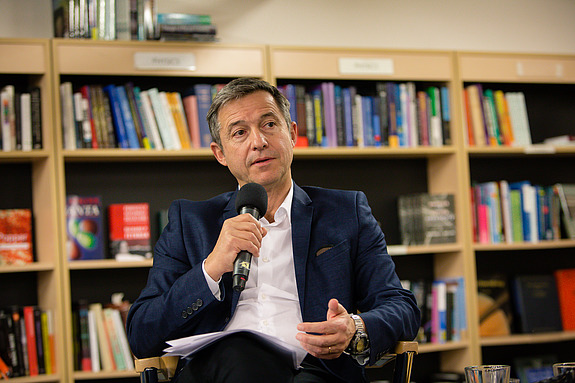Critique of Punitive Reason: Public Lecture by Didier Fassin
Press Contact

Didier Fassin, James D. Wolfensohn Professor in the School of Social Science, will present the public lecture “Critique of Punitive Reason” to address central questions related to correctional frameworks and to confront the idea of punishment itself: What is punishment? Why do we punish? Who gets punished?
UPDATE: Due to anticipated weather conditions in Princeton, the public lecture will be rescheduled.
The public event is sponsored by the Friends of the Institute for Advanced Study.
A long period of extreme and discriminatory incarceration practices in the United States has produced the largest carceral population in the world. As federal and state bodies grapple with the challenge of revising sentencing and correctional policies, a return to foundational questions is of paramount importance to achieve an equitable and effective corrections system. In this lecture, Fassin will propose a critical inquiry into the definition, justifications, and distribution of punishment based on ethnographic studies conducted on the police, the justice apparatus, and the prison system.
In his book The Will to Punish (Oxford University Press, 2018), Fassin offers an inquiry into the foundations of punishment, discussing various historical and national contexts and the unequal distribution of punishment that corresponds less to what is punishable than to who is punishable.
Didier Fassin is an anthropologist and a sociologist. Trained as a physician in internal medicine and public health, he dedicated his early research to medical anthropology, focusing on the AIDS epidemic and global health. He has investigated immigration and asylum policies as part of a collective project on borders and boundaries. He is also the author of Enforcing Order: An Ethnography of Urban Policing (Polity, 2013) and Prison Worlds: An Ethnography of the Carceral Condition (Polity, 2016), based on the observation of the everyday life of, respectively, an anticrime squad, with which he spent fifteen months, and a short-stay prison, which he studied over the course of four years. This research benefited from the support of the European Research Council.
In 2018, Fassin was recognized with the NOMIS Distinguished Scientist Award, which is presented to exceptional scientists in support of their exploration of unconventional academic paths. He is the first social scientist to receive the award, which comes with a grant that will be used to implement a project that will analyze contemporary crises from a global perspective.
For press interested in interviewing Fassin, please contact Lee Sandberg at lsandberg@ias.edu.


